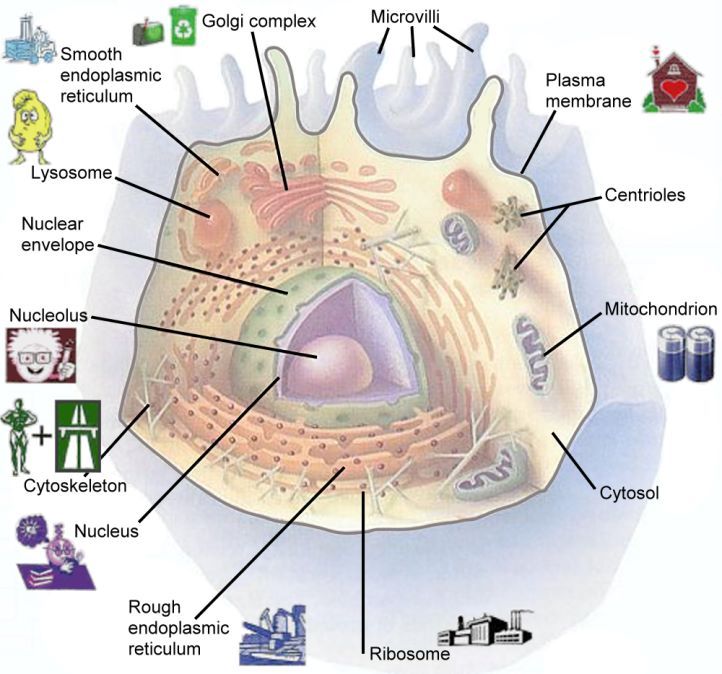Organism Cell
(Redirected from Cell)
Jump to navigation
Jump to search
An Organism Cell is a system surrounded by a cell membrane has a cytoskeleton and contains organelles that can absorb energy and can reproduce.
- AKA: Biological Cell.
- Context:
- It can range from being an Eukaryote Cell to being a Prokaryote Cell.
- It can become cellularly attached to another Living Cell (to create a multicellular organism).
- It can range from being a Healthy Cell to being a Tumorous Cell or a ...
- It can range from being a Real Organism Cell to being a Virtual Organism Cell.
- It can range from being an Active Cell to being a Senescent Cell.
- ...
- Example(s):
- a Blood Cell, such as a white blood cell, a red blood cell, a platelet cell.
- a Liver Cell, Kidney Cell, Heart Cell, Skin Cell, Bone Marrow Cell, ...
- a Nerve Cell, such a brain neuron cell.
- a Human Cell, Pig Cell, ...
- …
- Counter-Example(s):
- an OLAP Cube Cell.
- See: Metabolic Pathway, Organism.
References
2009
- (Wikipedia, 2009) ⇒ http://en.wikipedia.org/wiki/Cell_(biology)
- The cell is the structural and functional unit of all known living organisms. It is the smallest unit of an organism that is classified as living, and is often called the building block of life. [1] Some organisms, such as most bacteria, are unicellular (consist of a single cell). Other organisms, such as humans, are multicellular. (Humans have an estimated 100 trillion or 1014 cells; a typical cell size is 10 µm; a typical cell mass is 1 nanogram.) The largest known cell is an unfertilized ostrich egg cell.
- http://en.wiktionary.org/wiki/cell
- #6 (cytology) The basic unit of a living organism, surrounded by a cell membrane. There is a virtual zoo of single cell organisms living in your mouth..
/rbc02.jpg)






